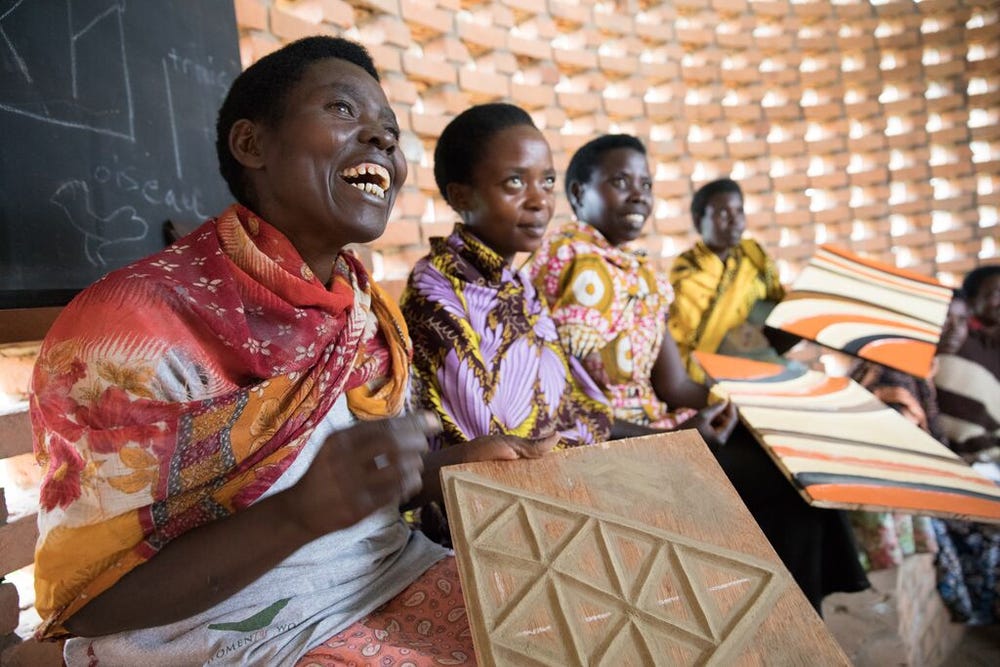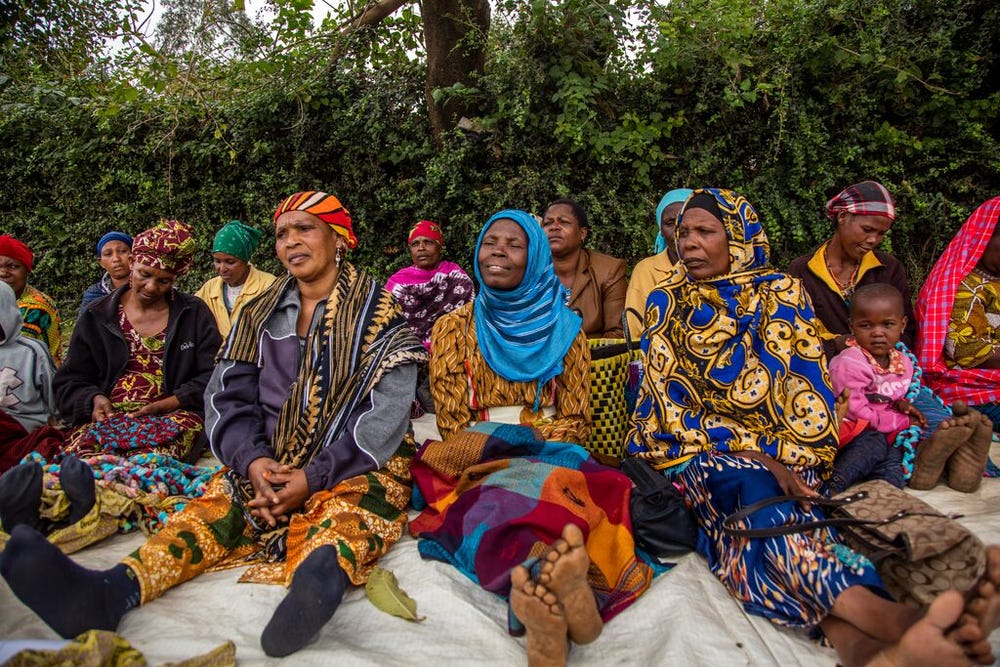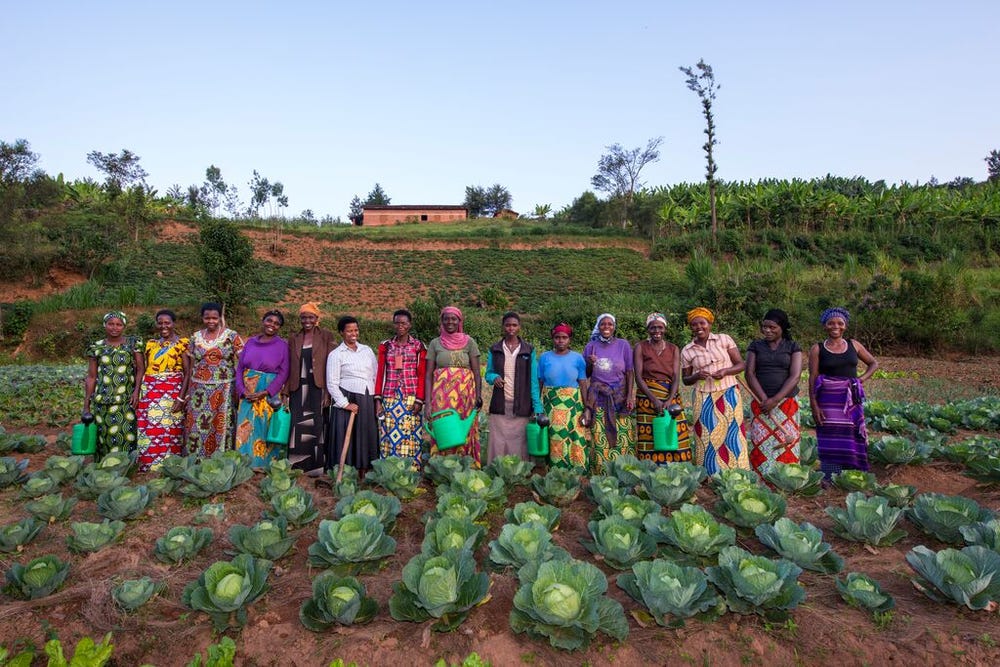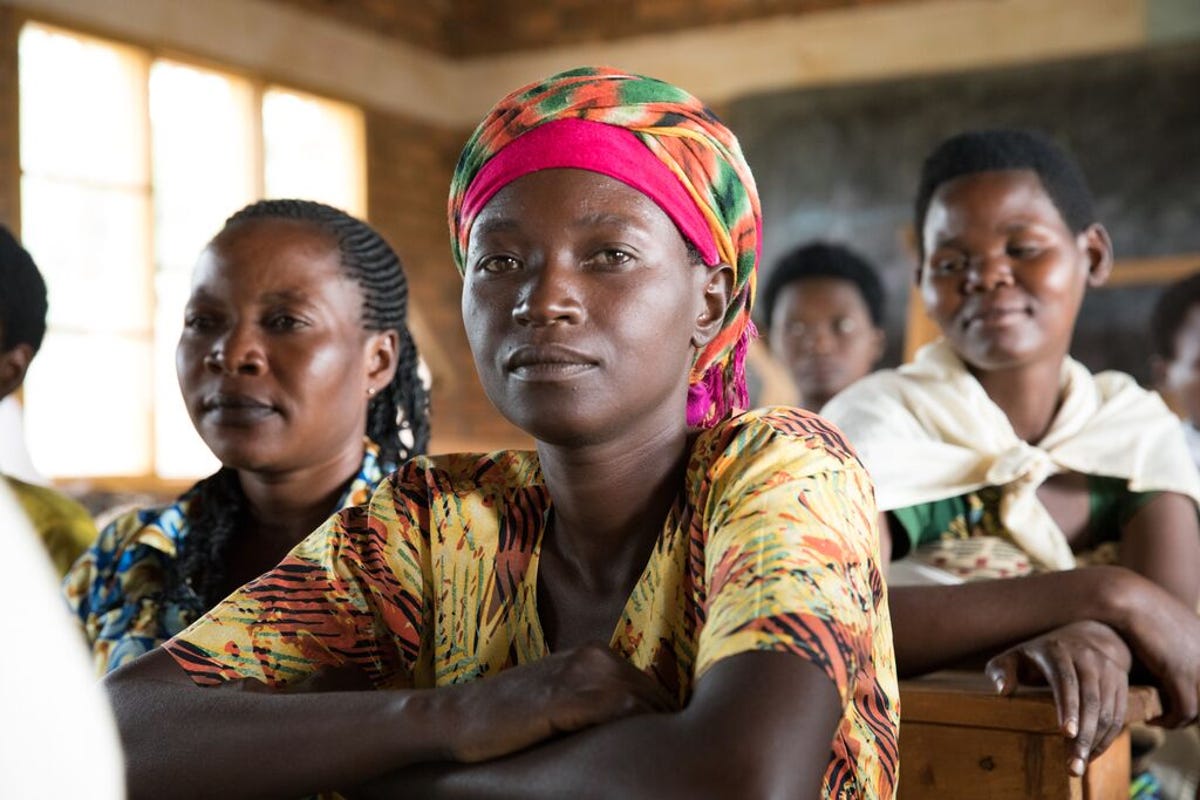How men’s engagement advances gender equality
Could involving men in women’s empowerment programmes increase their impact?
© Hand in Hand / Georgina Goodwin
Could involving men in women’s empowerment programmes increase their impact?
We believe that if both men and women engage in change as allies fostering mutual transformation, the resulting changes achieved will be more extensive and more enduring. We’ve seen that once the benefits of a woman taking control of her reproduction, employment, savings and investments emerge, both sexes champion the increased quality of life they have achieved.
We’ve tested this assumption through our work with Hand in Hand International in Tanzania and Women for Women International in Rwanda where the two organisations began conducting a five-year field trial led by the International Center for Research on Women (ICRW) in 2019.
This trial analyses existing women empowerment programmes that seek to engage men in a meaningful way to address gender imbalances and shift the perceptions, attitudes and behaviours both of men and women.
While progress will be monitored over the full five years, the preliminary results are already promising, with more women in paid employment, more land registered jointly as couples, better communication between couples, improved attitudes to gender equality and reduced acceptance of intimate partner violence.

© Women for Women International / Hazel Thomson
REACHING HEARTS, CHANGING MINDS
The traditional culture of the Maasai people, passed down over the generations for thousands of years, is known the world over. Less well-known is a huge gender divide, which sees women traditionally take on all the childcare and domestic duties, while men act as breadwinners, primary decision-makers, financial controllers – and sometimes the perpetrators of violence on women.
In Tanzania, the study is comparing two groups in Maasai communities. In the control group in Nduruma, a small town in north-east Tanzania, only the women are receiving gender equality and business skills training, whereas men and women are both involved in the nearby town of Mlangarini.
“There was greater acceptance of women working outside the home, men doing domestic work and equitable decision making, together with increased awareness of gender-based violence by the end of the preliminary study, especially in the Mlangarini group where men and women both received training,” says Isabel Creixell, Programme Development Manager at Hand in Hand International.
Researchers found that changes weren’t restricted to perceptions and attitudes but extended to behaviours as well.
“It was heartening to see a man walk by tending a herd of goats when I was sitting in a training session with 30 women,” she says. “Men don't usually tend goats, which is considered a woman’s job, but he’d agreed to do it while his wife attended training. Another woman told me that when she was sick her husband agreed to go and fetch water for her. Some couples are also talking about financial issues and making plans together, whereas previously women and men would hide their incomes from their partners. We’re seeing improvements both in income and savings in the families involved in the trial.”

© Hand in Hand / Georgina Goodwin
THE NEED FOR COMMUNITY BUY-IN
Culturally embedded perceptions and practices can’t be changed from outside – it’s essential for the local community to drive each change. So, all the trainers are locals, with male trainers working with men and female trainers working with women. This split provides men and women with spaces where they can feel safe discussing and reflecting on their roles and attitudes independently.
Another key driver of change was involving village leaders and cultural gatekeepers in relaying messages to the community.
“Our staff talked to village leaders beforehand and asked them what they wanted to address,” says Isabel. “We needed to explore their problems from their point of view to find out how we could address them.”
At first, men were resistant to discussions and potential change. Some even behaved aggressively to the trainers. But their attitudes changed when they could see the benefits for them and their families.
Allie McGonagle Glinski, Associate Director at the International Center for Research on Women, who conducted the study that led to the field trial, explains: “Some of the programmes that have been most successful in engaging men focus on fatherhood and caregiving roles. Men can immediately see the benefits both for them and their children by being more present in this way. Traditionally, caregiving roles have been seen as weak.”
“We should not forget that men are also harmed by pressure to fit the mould of what it means to be a ‘good man’ - the sole breadwinner for their family, the one who always has an answer and makes the decisions for the household,” says Allie.
Deconstructing the traditional idea of masculinity is part of the challenge of empowering women.

© Women for Women International / Alison Wright
ONE SIZE DOESN'T FIT ALL
Following the same approach everywhere doesn’t work. “You can even find significant differences between one village and the next,” explains Isabel.
Recognising this, the training delivered by the Men Engage programme that Women for Women runs in Rwanda, has been tailored for the country. Although only just past the half-way mark, the initiative has seen some very positive changes.
Mellisa Mazingi, Women for Women International’s Great Lakes Director, says: “Most of the men that have gone through positive masculinity training have become change agents, helping their communities understand the importance of promoting women in society by supporting them to become socially and economically inclusive."
Change takes time, however, and is not always met favourably. Women’s economic empowerment can initially even lead to increased violence by partners who feel threatened by their spouses’ new independence.
However, many men’s attitudes have changed positively over the course of the study so far.
In one case, a husband was opposed to his wife becoming a community mediator. He disapproved of the bicycle she had been given to help her in her work and sometimes prevented her going to meetings. During the training, he began seeing things very differently: “When we had a session on masculinities, being a man, power dynamics and the roles of women in economy and leadership, I realized how much I was harming my wife. Since then, I started cooling down and knowing that I must support my wife to perform her duties well.” Now he even drops her off at meetings.
A couple whose marriage had broken down largely due to the husband’s alcohol problems and violence, completely transformed their relationship. He says: “Today, I am supportive of my wife. I know we have equal rights and need to support each other. I reduced the quantity and the frequency of my alcohol consumption. Now we discuss every project together and I am an involved father.” As a result, they have renovated their house, bought a cow, are renting two pieces of land for agricultural use, have bought a water tank as well as bedding material for their house, and are practicing modern family planning methods.
“There’s increased awareness of gender equity in general. We’re working in communities that have never previously heard of it or discussed whether men should be helping more at home, including wives in decision making or making financial plans together,” says Isabel. “It’s baby steps now but they’ll translate into significant future outcomes.”
SHARING LEARNING
The five-year field trial aims to build the evidence base for working with men and boys to promote gender equality. The lessons learnt will then be built into a male engagement best practices toolkit by the ICRW which will be shared sector-wide.

.jpg?&width=1200&quality=80&auto=webp)
.png?&width=1200&quality=80&auto=webp)

.jpg?&width=1200&quality=80&auto=webp)